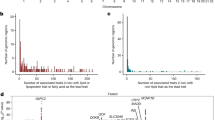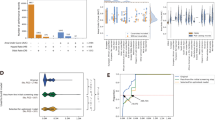Abstract
Mean, age-standardized breast-cancer mortality rates for women of 41 countries, during 1970-71, were closely correlated with diet for 1964-66. Partial correlation analysis indicated that breast-cancer rates were positively correlated with total fat, animal protein and animal calories, independently of other components of diet. These 3 components were correlated with one another so closely that it was not possible, with available data, to say whether any one was associated with breast cancer independently of the other 2. In addition to, and independently of, these correlations, breast cancer was associated with consumption of refined sugar.
Breast-cancer mortality rates at 50-54 years during 1964-67 for 26 countries were closely correlated with childbearing, expressed as mean family size for women aged 45-49 years in 1960-61. However, this correlation was not independent of the correlations with diet, and it was concluded that variation of breast-cancer rates between countries arose predominantly from differences in diet. The variation of breast-cancer risk with childbearing, observed in clinial studies, seemed best regarded as a second gradient of risk, seen more readily as variation of breast-cancer rates within a population, where differences in diet would be relatively small.
The physiological basis for the association between breast cancer and diet was not clear. The dietary associations did not correlate in an obvious way with height, obesity and oestrogen levels, factors observed in clinical studies to influence risk of breast cancer. That the observed statistical associations were real was supported by published findings on effects of diet on mammary cancer in experimental animals, as well as the lower rates of breast cancer amongst vegetarians.
This is a preview of subscription content, access via your institution
Access options
Subscribe to this journal
Receive 24 print issues and online access
$259.00 per year
only $10.79 per issue
Buy this article
- Purchase on Springer Link
- Instant access to full article PDF
Prices may be subject to local taxes which are calculated during checkout
Similar content being viewed by others
Rights and permissions
About this article
Cite this article
Hems, G. The Contributions of Diet and Childbearing to Breast-cancer Rates. Br J Cancer 37, 974–982 (1978). https://doi.org/10.1038/bjc.1978.142
Issue Date:
DOI: https://doi.org/10.1038/bjc.1978.142
This article is cited by
-
Dietary fat, fatty acids and breast cancer
Breast Cancer (1997)
-
Dietary fat and breast cancer: A controversial issue
Breast Cancer (1997)
-
Nutrition, hormones, and breast cancer: Is insulin the missing link?
Cancer Causes and Control (1996)
-
Mortality trends and past and current dietary factors of breast cancer in Spain
European Journal of Epidemiology (1996)



